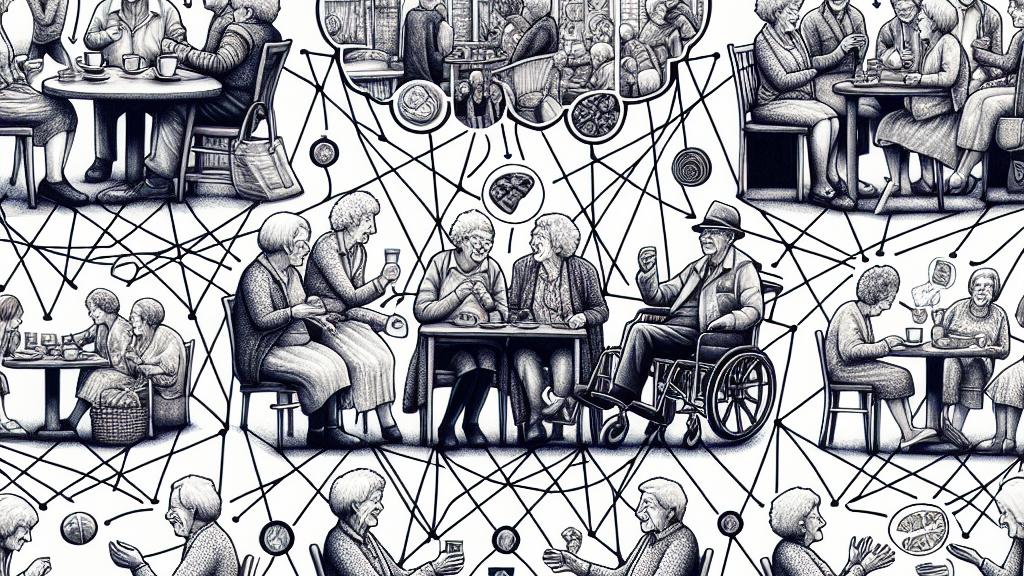How Socializing Can Help Delay Dementia for Older Adults
Overview
- Regular social interaction can effectively delay dementia onset by as much as five years, showcasing the importance of social life in aging.
- Engaging in dynamic activities like visiting friends, attending community events, or volunteering serves as powerful tools for maintaining cognitive health.
- The findings emphasize that a vibrant social life is key to fostering mental resilience and diminishing the risk of cognitive decline.

The Impact of Social Activities on Dementia
Recent studies present an eye-opening connection between social activities and the delayed onset of dementia among older adults. For instance, consider this: seniors who regularly engage in social relationships—like enjoying family dinners, sharing laughter over coffee with friends, or participating in community festivals—may delay dementia symptoms by as much as five years! A pivotal study that tracked 1,923 elderly individuals over an impressive seven years found that those who were the most socially active experienced a stunning 38% reduction in the risk of developing dementia. This captivating evidence underscores the crucial necessity for maintaining strong social connections as we age, suggesting that our relationships could genuinely safeguard our cognitive health.
Types of Social Engagement That Matter
So, what specific social activities make the biggest difference? The research pinpoints a delightful range of interactions. Picture an elderly individual enjoying flavorful meals at a favorite restaurant with family members, relishing in vibrant storytelling. Alternatively, visualize a group of seniors embarking on exciting trips, where they not only enjoy the scenery but also engage in heartwarming conversations. Volunteering for local charities or attending community events can also work wonders—imagine the joy of helping others while building meaningful connections! Each social encounter acts like a mental workout; whether it's a simple catch-up over tea or an adventurous outing, these interactions stimulate cognitive functions, keeping the mind agile. Thus, the more one involves themselves in such activities, the better they can fight off cognitive decline.
The Science Behind It
Exploring the science behind these profound findings is equally intriguing. Bryan James, a knowledgeable epidemiologist from Rush University, who co-authored the study, articulates that engaging in social interactions not only invigorates the spirit but also challenges the mind. When seniors partake in complex social conversations or navigate group dynamics, they are effectively enhancing neural connections in their brains. Furthermore, coupling socialization with brain-stimulating activities, such as playing strategic board games like Mahjong or practicing Tai Chi, creates a powerhouse effect for cognitive health. Just visualize a spirited group of seniors around a Mahjong table, laughter echoing as they ponder their next moves; this scene is more than fun—it represents a robust cognitive exercise that keeps the brain sharp. Such combinations highlight the importance of engagement in preserving cognitive vitality.
A Holistic Approach to Dementia Prevention
Consequently, adopting a holistic strategy that incorporates both social and cognitive activities is vital for effective dementia prevention. The key takeaway? Older adults should be encouraged not only to sustain current relationships but also to actively seek new connections. For example, joining a local book club, participating in art classes, or volunteering for community outreach can provide fantastic opportunities for social interaction and mental engagement. Communities play a pivotal role here, too—by creating lively environments, such as senior centers or hobby clubs, where engagement thrives, we can significantly uplift the quality of life for our aging populations. Remember, nurturing a vibrant community fosters friendships and promotes holistic health, empowering seniors to embrace life with joy and vigor!

Loading...